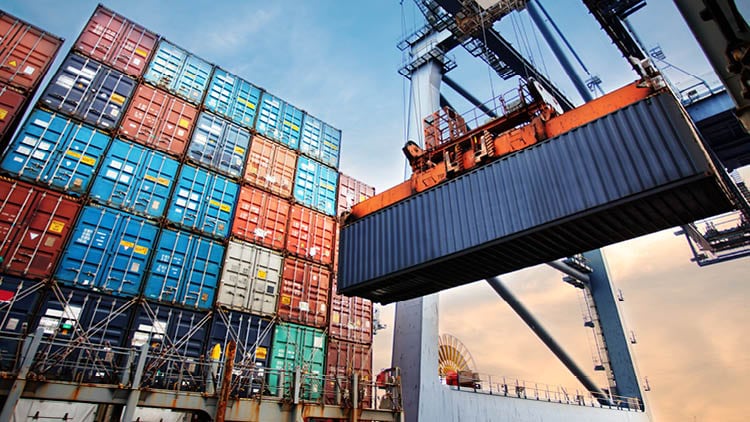Background
Wednesday 28 May saw a significant ruling from the US Court of International which deemed that President Trumps actions to impose tariffs under the IEEPA legal instrument were illegal.
This is a key development in respect of US trade policy which has impacts for all goods entering the US.
IEEPA tariffs overturned
On Wednesday 28 May, the United States Court of International Trade ruled that tariffs imposed by President Trump under the International Emergency Economic Powers Act (IEEPA) are illegal. The ruling by a three-judge panel at the New York-based court came after several lawsuits argued that President Trump had exceeded his authority under IEEPA to impose tariffs.
The court’s decision blocks the tariffs that President Trump imposed last month on almost all US trading partners (e.g. the “reciprocal” tariffs) and levies he imposed earlier in his term on China, Mexico and Canada. Importantly, the court did not rule on the Section 232 tariffs, namely Steel and Aluminium and automotive, which remain in effect.
It is the expectation that the Trump administration will appeal the against the ruling, with White House spokesperson Kush Desai stating that “It is not for unelected judges to decide how to properly address a national emergency”.
Further analysis will be required on how this ruling is practically applied at the border and to understand if there is any recourse for refunds to importers which have paid the additional tariffs, brought in under IEEPA.
The week in summary
This week saw another escalation in transatlantic trade tensions, with President Trump announcing the prospect of a 50% tariff on all EU imports from 1 June. Framed in response to what he described as an unfair trading relationship, the threat understandably sparked concern across European export sectors, particularly those heavily reliant on the US market, such as Ireland.
While initial commentary suggested the measure could be imposed imminently, a follow-up call between President Trump and European Commission President Ursula von der Leyen resulted in a pause, pushing any potential action back to 9 July, coinciding with the date the 90 day pause on the individualised country specific tariffs is due to end. In effect, this means the EU will be subject to 50% tariffs come 9 July should negotiations prove unsuccessful. In the meantime, while the EU has welcomed the delay, the underlying tensions remain unresolved.
Following this pause, President Trump has indicated that there has been progress in the US trade talks with the EU, posting on Truth Social that “I have just been informed that the EU has called to quickly establish meeting dates. This is a positive event, and I hope that they will”.
Business and political reaction
In a statement published following the recommendation by President Trump of 50% tariffs on EU goods, Taoiseach Micheál Martin stated that “Tariffs at the level suggested would not only push prices up, they would grievously damage one of the world’s most dynamic and significant trading relationships, as well as disrupting wider global trade”. Commenting on the subsequent pause and key next steps, the Taoiseach advised that “I welcomed the pause in tariffs until early July to allow for continued negotiations between the EU and the US, and ideally an agreed outcome.” and “A negotiated outcome is the best possible result for both sides, as well as for global trade.”
In comments echoing that of the Taoiseach, Tánaiste Simon Harris outlined his views of the negative impact of such tariffs, stating “Tariffs are a bad idea. They’re bad for Ireland, the EU, and the US. They push up prices for consumers and businesses. We have built a relationship of prosperity, jobs and investment based on working together and trading together”. Furthermore, the Tánaiste reiterated that negotiations are the only way forward, advising “Negotiations remain the main focus for both the EU and Ireland and our deep and enduring relationship with the United States merits a more sustained and substantive engagement in the period ahead in a bid to bring about a negotiated settlement”.
Aengus Kelly, the head of the world’s largest aircraft leasing company, AerCap, has called on President Donald Trump to renegotiate and expand the 1979 Agreement on Trade in Civil Aircraft to expand the list of signatories and include countries such as China and India. On Wednesday, Kelly commented that: “It would be a fantastic win for the president if he could enhance and significantly improve the 1979 aerospace treaty. Countries like India and China are not in it – that needs to change.”
iPhone tariffs
In a further Truth Social post on Friday 23 May, President Trump suggested that additional tariffs would be charged on Apple iPhones if they are not manufactured in the US. President Trump stated “I have long ago informed Tim Cook of Apple that I expect their iPhone’s that will be sold in the United States of America will be manufactured and built in the United States, not India, or anyplace else. If that is not the case, a Tariff of at least 25% must be paid by Apple to the U.S.,”. It is yet to be determined if this will prompt Apple to reshore manufacturing to the US, or how tariffs may be applied specifically to one company, but this signals a further step in US trade policy.
EU trade agreements
On Tuesday, the EU Trade Commissioner Maroš Šefčovič left for the UAE to kick off initial negotiations on the proposed EU – UAE Free Trade Agreement opening up new economic opportunities for EU exports in the Middle East. As the trade uncertainty with the US continues, potential new markets and ease of access for EU exports can only be beneficial in reducing dependence on the US, where tariffs may be a factor moving forward.
Pharmaceutical exports
Although the public consultation period allowed for under the Section 232 investigation into the effect of pharmaceutical imports into the US ended in early May, no further action has been taken so far regarding the imposition of tariffs. However, this does not indicate that no action will be taken in the future and affected businesses should closely monitor this space and prepare for the possibility of tariffs on pharmaceutical products.
Key actions businesses can take today
For EU exporters, the uncertainty adds yet another layer of complexity to supply chain planning. The risk of further tariffs – whether broad or sector-specific – means companies should be taking a fresh look at their US-bound trade flows, origin strategies and contingency arrangements.
All of this continues to point to a wider trend in US trade policy, where tariffs are once again being used as a political tool. With more developments likely in the lead-up to the summer, businesses would be well placed to monitor the situation closely and prepare for a range of outcomes.
Dates for the diary
While the 90-day pause remains in effect, there are still some key dates to be aware of in respect of the imposition of tariffs and wider US and EU trade policy:
- 10 June – End to the public consultation period in respect of EU countermeasures on US tariffs.
- 9 July – End of the 90-day pause on additional country specific tariffs on imports into the US.
- 14 July – End to the 90-day pause announced by the EU on tariffs to be imposed on US imports in response to Steel and Aluminium tariffs imposed by the US.
We’re here to help you
Keeping up to date with US trade policies, trade agreements and new and existing tariff reviews which may lead to further tariff measures is crucial to assessing the risk to your supply chain and the impact these tariffs may have. Understanding your product portfolio and the impact that tariffs may have on your imports is an important first step. We are here to support your business with this analysis and navigating these choppy waters.
Specialist Tax Services
Helping businesses navigate risks and realise opportunities.
Contact us













Menu